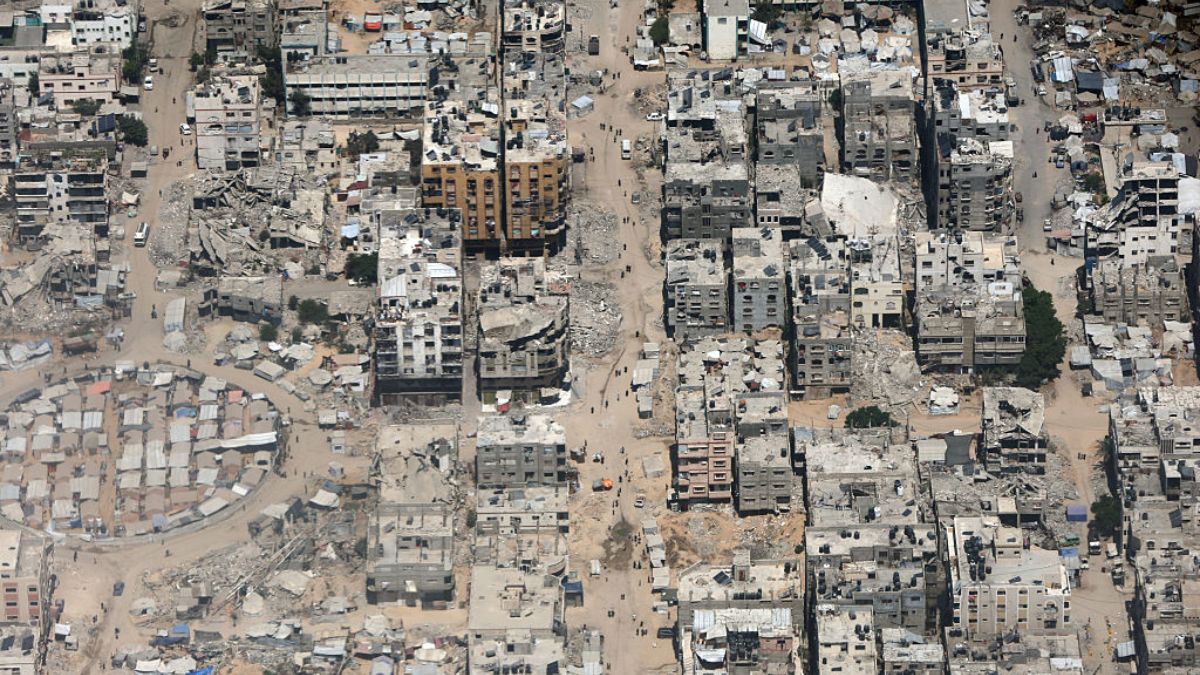
Gaza’s health ministry reported eight people, including three children, died from malnutrition complications in just 24 hours this week, as the territory faces what UN experts describe as widespread starvation. Nearly 12,000 children under five were identified as suffering from acute malnutrition in July alone, the highest monthly figure recorded since the conflict began.
Deaths from malnutrition have reached 147 casualties as of early August, according to the World Health Organization. The situation has worsened dramatically since March 2025, when Israel imposed even stricter restrictions on aid entering the territory. Hospital bed occupancy has reached 240 percent capacity at al-Shifa hospital and 300 percent at al-Ahli hospital in northern Gaza.
Medical experts warn that Gaza’s starving population faces a deadly new threat, as food aid could actually kill without proper medical care. When severely malnourished people eat too quickly after starvation, they can develop a dangerous condition called refeeding syndrome that can cause heart failure and death within hours.
Refeeding syndrome poses hidden danger to starving population
Refeeding syndrome is a potentially fatal condition that occurs when severely malnourished patients receive nutrition after prolonged starvation. Historical accounts show that one-fifth of Japanese prisoners who were starved in prison camps during World War II died suddenly after receiving food and vitamins.
When a person has reached a state of starvation, the body undergoes extreme metabolic changes. Giving too much food or the wrong kind too quickly can trigger a dangerous shift in fluids and electrolytes known as refeeding syndrome, which can be fatal if not carefully managed, according to medical experts treating patients in Gaza.
— Warfare Analysis (@warfareanalysis) August 4, 2025
BREAKING
Gaza Health: Gaza hospitals recorded 5 deaths in the past 24 hours due to famine and malnutrition, all of them adults.
This brings the total number of victims of famine and malnutrition to 180, including 93 children. pic.twitter.com/rqgR0KJgZS
The condition happens because during starvation, the body changes how it processes nutrients. When feeding resumes, insulin surges, causing glucose and electrolytes to flood into cells. This sudden shift sharply lowers blood levels of phosphate, potassium, and magnesium. These changes can cause dangerous heart rhythms, breathing problems, and organ failure.
Children with severe malnutrition are at higher risk of refeeding syndrome, which can cause abnormal heart rhythms. A 2021 review by Doctors Without Borders on famine responses in East Africa reported that up to 27 percent of severely malnourished individuals developed complications associated with refeeding syndrome when food aid was given without proper safeguards.
Gaza’s collapsed healthcare system cannot provide the needed care
Gaza’s medical system is not equipped to handle this challenge. Only 50 percent of hospitals and 38 percent of primary health care centers in Gaza are functioning, a stark contrast to the advanced medical care available to political leaders in developed nations, and even when working, they are only partially functioning. There are not enough doctors, not enough supplies, and not the right supplies to properly monitor the refeeding process.
— Zohran Mamdani (@zohranmamdani) July 31, 2025
Gaza famine deepens
20,000+ children hospitalized for acute malnutrition
300,000 children under 5 at risk
150,000 pregnant & breastfeeding women need urgent supplements
This is deliberate, engineered starvation — a war crime happening in real time.
Ideally, doctors would monitor the refeeding process for each person for weeks to even months. Children would be given special fortified milks and ready-to-use therapeutic foods, while doctors would draw blood to monitor sodium and potassium levels. Treatment requires careful vitamin and electrolyte supplementation before feeding starts, along with skilled medical teams and routine lab testing.
The situation in Gaza makes proper treatment nearly impossible. Medical supplies are severely restricted, and healthcare workers face constant danger. The World Health Organization recorded 735 attacks on healthcare in Gaza between October 7, 2023, and June 11, 2025, killing 917 people, injuring 1,411, and damaging 125 facilities, including 34 hospitals.
Without proper medical support, the very food meant to save lives could become deadly. Experts are calling for immediate international pressure to allow medical equipment, laboratory facilities, and specialist teams into Gaza alongside food aid while elsewhere, health policy debates focus on vaccine programs rather than addressing urgent malnutrition crises.







